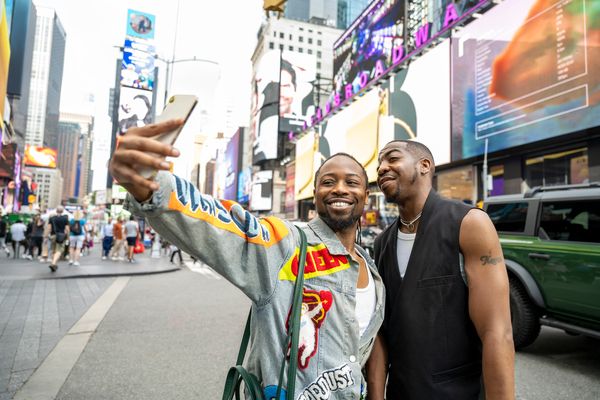Business students know the risks of mergers and acquisitions.
There are no perfect numbers on the issue, but according to Harvard Business Review, between 70% and 90% of M&A deals fail. Blockbuster collapses are well known. Among them are Time Warner and AOL, which joined in a $165 billion merger that unraveled when the internet bubble burst, and Hewlett-Packard's (HPQ 0.46%) $87 billion merger with Compaq, which led to years of underperformance in the personal computing industry.

Image source: Getty Images.
The road to bankruptcy may be littered with billion-dollar writedowns from bad deals, but acquisitions sometimes pay off. Market watchers were left to ponder another blockbuster deal earlier this year when Amazon.com, Inc. (AMZN +2.62%) announced it would take over Whole Foods Market. The news sent shockwaves through the grocery industry as supermarket stocks plunged, but Amazon shares actually moved up a few points. Less than a month into the takeover, signs are positive that the deal is working as Whole Foods traffic was up 25% in the first days after it implemented strategic discounts, and Amazon had sold out of some Whole Foods-branded products on its website.
Despite what Harvard Business Review may say, sometimes an acquisition can save a company or make it several times more valuable. Below, we'll reveal the best acquisition of the 21st century, but first let's look at a couple of honorable mentions.
Vail-Whistler
Last October, Vail Resorts, Inc. (MTN 2.81%) closed on the biggest acquisition in the history of the North American ski industry. The largest ski resort operator in the U.S. acquired British Columbia's Whistler Blackcomb for $1.06 billion. Whistler Blackcomb is often ranked as the No. 1 ski area in North America and is the biggest on the continent.
The move put the Canadian resort at the pinnacle of Vail Resorts' long-standing acquisition strategy, which has brought other premier mountains like Park City and Heavenly into the fold, and that business approach has been the main driver for the stock's outperformance in recent years. Shares are up more than 300% over the last five years, as the chart below shows.
Vail shares jumped by 8% when the announcement was made, and management said results last ski season were stronger than expected at Whistler. Vail offers access to all of its resorts through the Epic Pass, which gives it an advantage over smaller competitors as ski fanatics love being able to hit some of the best mountains in North America for the same price. With the addition of Whistler, that advantage just got significantly bigger, and it eliminated a major competitor.
Facebook-Instagram
Considering the valuation of social media companies today, it seems almost unfair that Facebook (FB +0.09%) was able to nab photo-sharing app Instagram for just $1 billion in 2012. Today, Instagram is the No. 2 social media brand in the world, behind just Facebook itself, with more than 700 million monthly active users.
Instagram is a core part of Facebook's social media empire, which is worth nearly half-a-trillion dollars. Acquiring Instagram removed a key competitive threat, and it's become a crucial bulwark against competitors like Snap Inc's (SNAP 1.32%) Snapchat as Instagram Stories now has more users than Snapchat, which pioneered the Stories concept.
Facebook has also been able to apply its own advertising expertise to Instagram's platform, helping to monetize it, and it's taken advantage of the many synergies and cross-promotional opportunities between the two companies. Some analysts value Instagram at around $50 billion today, making the acquisition a brilliant financial move as well.
And the winner is
In 2005, Priceline Group (PCLN +0.88%) was on its knees after barely surviving the dot-com bust and 9/11. Today, the company is worth nearly $100 billion, and the biggest reason why is a small acquisition it made back then. That year, the online travel agency took control of the Amsterdam-based Booking.com for just $135 million. Since then, that brand has grown like wildfire.
From 2006 to 2010, Priceline's international revenues grew at a compound annual rate of 68%, or by more than a factor of 13 over that five-year period. Today, though Priceline may be best known for its namesake site and Kayak, its international business, of which Booking.com is the biggest component, contributes about 80% of overall revenue and gross profit.
Since the Booking.com acquisition, shares of Priceline are up nearly 8,000%. That wouldn't be the case without taking over the European hotel-booking site.
Success stories like Priceline and the other companies above are a reminder that conventional wisdom isn't always correct. Though the average acquisition may not pan out, the best ones return blockbuster gains to shareholders and help define the acquiring company for years to come.












